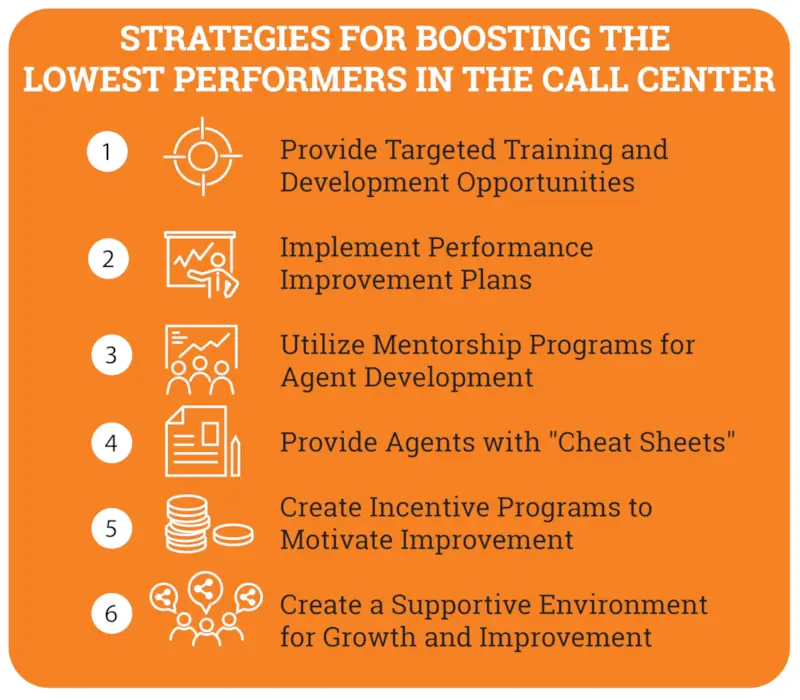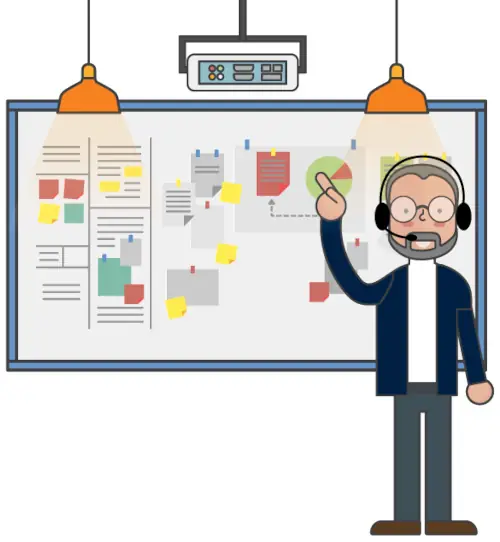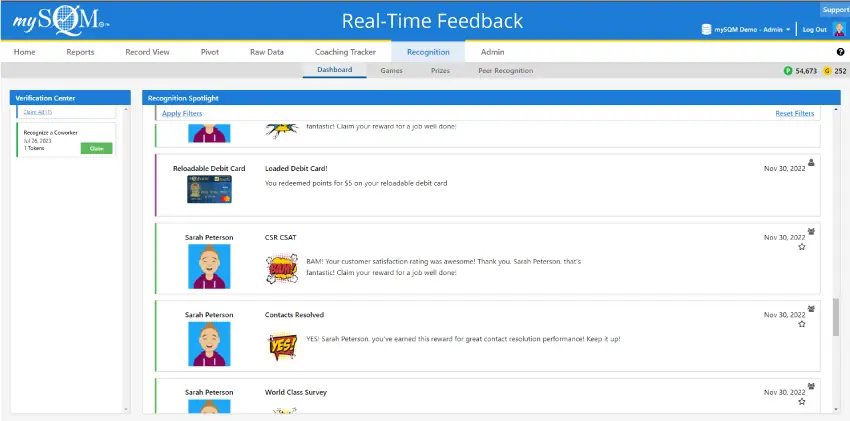Uplifting your call center's lowest performers can often seem particularly daunting. However, it's vital to understand that these agents are not liabilities to the company, but rather untapped potential waiting to be nurtured.
Leaders can transform their lowest performers into valuable assets by embracing a holistic approach that encompasses training, mentorship, and continuous feedback. This not only boosts the team's overall productivity but also significantly enhances employee morale and retention. It's time to shift our perspective and invest in the development of every member for the collective success of the team.
What Is the Impact of Low-Performing Agents in the Call Center?
Low-performing call center agents can substantially impact operations, affecting the bottom line, team dynamics, and customer satisfaction. Recognizing and addressing the challenges proactively is crucial for maintaining a productive and positive work environment.
Effects on Team Performance
The effects are multifaceted when there are low-performing individuals within a call center team. Firstly, it places additional pressure on higher-performing colleagues, who may need to compensate for the shortfall. This situation can lead to increased stress levels, potential burnout, and diminished job satisfaction among top performers.
For example, suppose an agent lacks the confidence and/or experience to handle more complex calls. In that case, they might consistently ask other agents for help or even transfer the call to a more experienced agent. If this goes on for too long after the training period is over, it will put pressure on other agents and create resentment and possibly burnout due to the added workload.
Furthermore, it can foster a culture of mediocrity, lowering morale and affecting the team's overall performance. Customer service may also suffer, resulting in negative feedback and loss of business. Hence, managing low performers isn't just about improving their performance but safeguarding the team's health and the company's reputation.
Identifying the Root Causes of Low Performance
To address the issue of low performance effectively, it is essential to identify its root causes. Often, low performance can be attributed to a lack of proper training or unclear expectations. Sometimes, the problem may be personal issues or a mismatch between the employee's skills and their job responsibilities.
For example, suppose a call center agent is not technologically savvy yet is working in a department where they must deal with lots of technological support calls. In that case, they may just not be suited for that department. They might thrive in another department that handles inquiries, for instance.
Conducting thorough evaluations and having open conversations with underperforming employees can uncover these underlying issues, providing a foundation for tailored strategies that address specific needs and obstacles.
Strategies for Boosting the Lowest Performers in the Call Center
The following strategies can play a critical role in turning the situation around.

Investing in targeted training and development opportunities is crucial for uplifting low performers. This approach involves identifying skill gaps and providing resources or courses to fill these gaps. Customized training programs, whether in the form of workshops, online courses, or shadowing high-performing colleagues, can equip low performers with the knowledge and skills they need to improve.
For example, a company might identify areas such as handling complex customer queries and improving call resolution times as key challenges. They introduced specialized workshops focused on conflict resolution techniques and time management skills to address this.
Performance Improvement Plans (PIPs) are structured processes designed to help employees improve performance within a specific timeline. A PIP should outline clear and achievable objectives, set realistic timelines, and provide a roadmap for improvement, including checkpoints and evaluation metrics.
It's crucial that these plans are developed in collaboration with the agent to ensure they understand the expectations and are committed to the process. Regular feedback and support during the PIP can significantly enhance its effectiveness and the employee's motivation to improve.

For example, an agent at company XYZ was facing challenges in meeting customer satisfaction goals. The PIP included clear objectives, such as achieving a minimum customer satisfaction score of 80% within a two-month timeframe. Regular feedback sessions were scheduled bi-weekly to track progress, provide guidance, and offer additional training resources as needed.
Mentorship programs can be a powerful tool for developing low performers in a call center. Pairing a low-performing agent with a more experienced and high-performing mentor can provide them with personalized guidance, support, and encouragement.
Mentors can share insights, strategies, and best practices that they have learned through their experience. This one-on-one relationship fosters a supportive learning environment, encouraging the mentee to strive for improvement while building confidence and skillsets.
Even motivated agents may struggle with remembering all the product and process information. This is apparent when reviewing their interactions, such as calls, emails, and chats, for accuracy and examining their hold times for excessive research pauses.
Once knowledge gaps are identified, coach agents to use the company's knowledge base efficiently and offer cheat sheets containing commonly asked questions and answers to address these gaps effectively.
Incentive programs designed to motivate improvement can have a significantly positive effect on low performers. These programs should reward both effort and achievement, encouraging agents to set personal goals and strive to reach them.
Rewards can vary from financial bonuses, additional leave days, public recognition, or growth opportunities within the company. Importantly, incentives should be structured to promote teamwork and collective success rather than fostering unhealthy competition. By recognizing and rewarding progress, incentive programs can boost morale, motivation, and, ultimately, performance.
An agent, Mark, for instance, set a goal to increase his call resolution rate by 5% within a month. Upon reaching this milestone, he received a financial bonus and public recognition during team meetings. This incentive program motivated Mark to surpass his goals and fostered a sense of teamwork and collective success among the agents, leading to overall performance improvements across the team.
SQM's employee real-time financial recognition program is an excellent example of an incentive program. The real-time recognition program awards points based on post-call surveys, quality assurance, and internal data agent performance captured in mySQM™ Customer Service QA software.
In other words, an agent could be awarded points in the following ways:
- They receive a high Csat score from a post-call survey.
- They comply with the quality standards determined by quality assurance metrics.
- mySQM™ Customer Service QA software captures internal data indicating high agent performance.
Once an agent is awarded points, these points are instantly displayed on the Recognition Dashboard on their mySQM™ account. These points can then be converted to dollars and redeemed at most retailers using an SQM debit card.
Agent recognition is frequent, impactful, and descriptive making it an effective software tool for motivating agents to improve first contact resolution and lowering operating costs. However, recognition also plays a crucial role in increasing employee and customer satisfaction, thereby reducing turnover rates in the call center.

For improvement to be sustained, fostering a supportive environment that encourages growth is fundamental. This involves providing the tools and training for development and creating an atmosphere where agents feel valued and motivated to enhance their skills.
1. Encourage Open Communication and Feedback
Central to this environment is the encouragement of open communication and feedback. Agents should feel comfortable expressing concerns, asking for help, and offering suggestions without fear of negative repercussions. This two-way communication fosters trust and shows agents their input is valued, boosting morale and encouraging a more engaged and proactive workforce.
For example, regular team meetings can be held where agents are encouraged to share their concerns, seek assistance, and provide suggestions for process improvements. This could lead to an agent feeling empowered to suggest a new call-handling technique during one of these meetings, significantly improving efficiency. This open dialogue fosters trust and demonstrates to agents that their input is valued, leading to a more proactive and motivated workforce at the call center.
2. Recognize and Celebrate Improvements
Recognition of progress and celebrating improvements, however small, is incredibly important. Regular acknowledgment of positive changes in performance can significantly boost an agent's motivation and confidence.
Implement reward systems or incentive programs to celebrate milestones and highlight the value of their contributions to the team's success. This motivates the agent and sets a precedent for others in the team to strive towards improvement.
3. Foster a Culture of Continuous Learning and Development
Finally, fostering a culture of continuous learning and development is critical to sustainable improvement. Encourage agents to participate in training sessions, workshops, and seminars relevant to their role. Investing in their professional growth shows commitment from the organization to their career path, which in turn, inspires loyalty and a desire to perform at their best.
Additionally, consider introducing mentorship programs where less experienced employees can gain insights and learn from the success stories and challenges of their more experienced colleagues.
For example, a low-performing agent could be paired with a high-performing agent for a day or two, where the low-performing agent sits in on all the high-performing agent's calls to listen and gain insights. They could debrief the calls afterward, and the high-performing agent can give tips and guidance on how to handle different kinds of calls.






